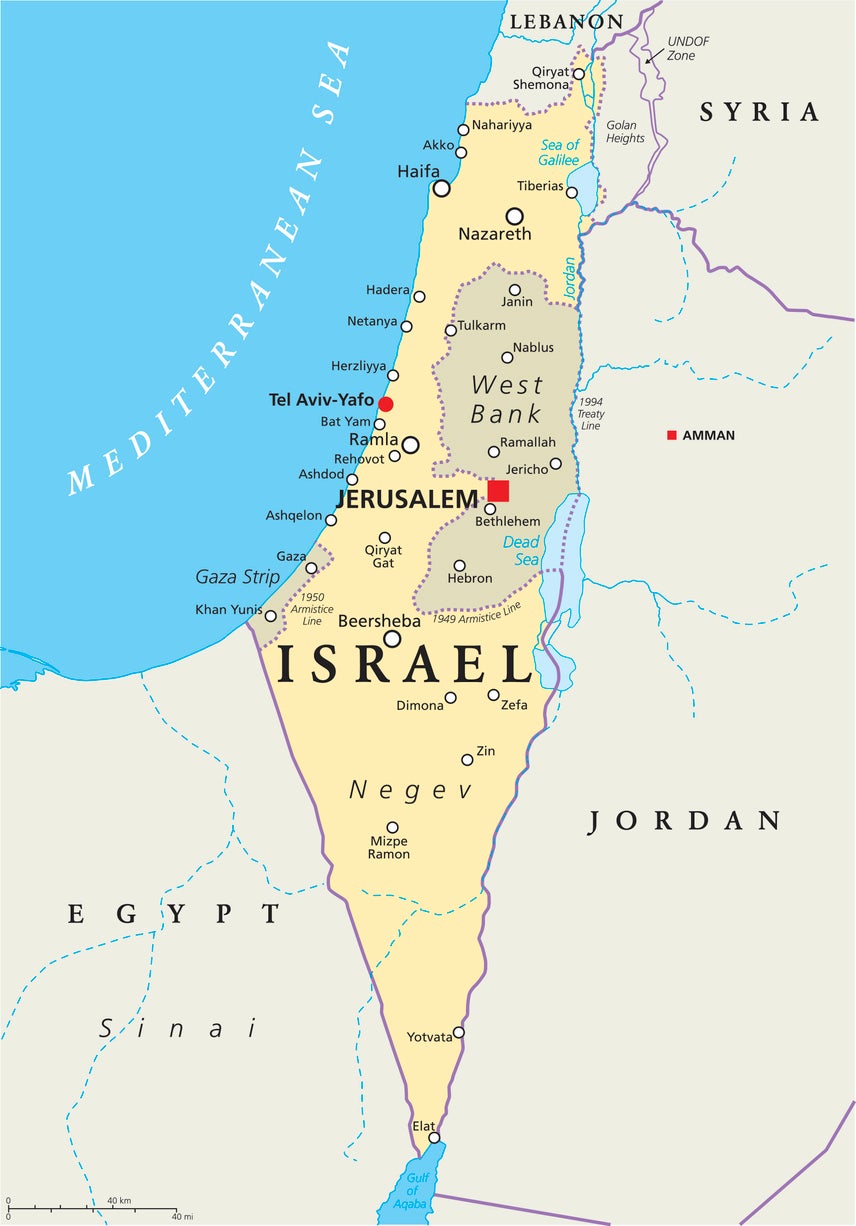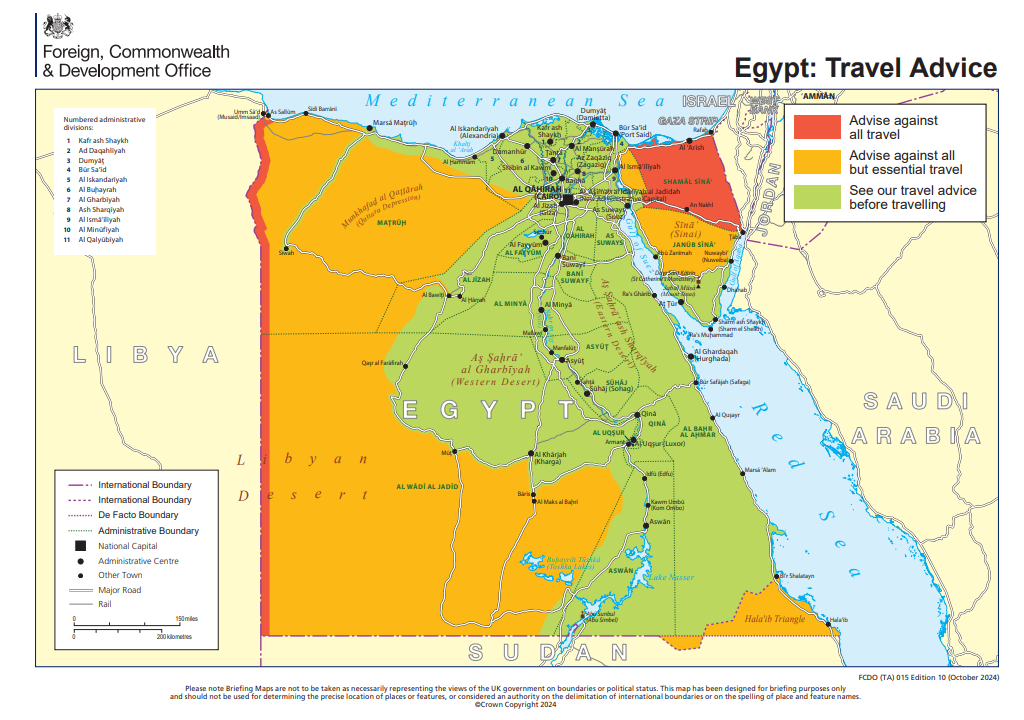Is it safe to travel to Egypt? Your rights amid ongoing conflict in Middle East
The Foreign Office does not warn against travel to most parts of Egypt, but asks travellers to remain vigilant
After days of escalating conflict between Israel and Iran, a ceasefire deal proposed by US President Donald Trump is tentatively holding.
Despite the ceasefire put in place on 24 June, Israel’s defence minister claimed Iran had violated the agreement by launching strikes, which Iran has denied.
After Israel launched airstrikes on Iran on 13 June, the two countries continued to attack one another, and the US got involved when Trump launched strikes on Tehran’s nuclear facilities.
Those travelling to nearby holiday hotspots such as Egypt, are searching for answers about whether it is safe to travel.
Egypt has many popular tourist destinations, and while the UK’s Foreign Office has warned against travel to some areas of the country, many of the popular tourist destinations are still considered safe to travel to, with holiday companies and airlines continuing to operate in the country.
How far is Israel from Egypt?

Though Israel directly borders Egypt, most of the country’s major cities and tourist destinations are a substantial distance away, and so Egypt has avoided much of the Israel-Gaza conflict.
Sharm el-Sheikh is the closest destination, though it is still over two-and-a-half hours’ drive away from the nearest border town and over five hours away by road from the area around the Gaza border. Cairo, Alexandria, Hurghada and Luxor are even further away.
Will my flight to Egypt be disrupted?
Cairo Airport appears to be operating its flight schedule as normal, apart from some minor delays to departures.
Hurghada International Airport is also operating as normal, apart from a few delays.
What are my passenger rights?
Under air passengers’ rights rules, passengers who begin their journeys in the UK or the European Union are entitled to be flown to their destination as soon as possible.
If your cancelled flight is covered by UK law, passengers can choose between getting an alternative flight or receiving a refund if their flight is cancelled.
If you received less than 14 days’ notice of a cancellation, you may also be able to claim compensation. However, this is unlikely if the cancellation was not the airline’s fault.
What if I have booked a package holiday to Egypt?
Package holidays are operating as usual. If you have an upcoming trip booked and want to postpone, get in touch with your tour operator or holiday provider; they may offer some flexibility. However, if not, there are currently no grounds for travellers to expect a refund if they cancel, nor to claim the money back through travel insurance, as the UK’s Foreign, Commonwealth & Development Office (FCDO) has not issued a blanket “avoid all non-essential travel” advisory for Egypt.
If FCDO advice changes to advising against all travel, you can cancel a package holiday without penalty for a full refund.
Your travel insurance could be invalidated if you travel against advice from the FCDO.
What is the Foreign Office travel advice for Egypt?

The FCDO has issued new travel advice for those visiting Egypt last week, stating that “following hostilities in the region, a ceasefire between Israel and Iran began on 24 June.
“You should stay up to date with events in the region, check for any transport disruption that may still be occurring, monitor local and international media for the latest information, read the FCDO’s advice on if you’re affected by a crisis abroad and follow the instructions of local authorities.”
The FCDO also advises against travel in certain areas of Egypt. It advises against all travel to within 20km of the Egypt-Libya border and all travel to the North Sinai Governorate.
The FCDO also advises against all but essential travel to:
- The town of El Salloum
- The northern part of the South Sinai Governorate, beyond the St Catherine-Nuweibaa road, except for the coastal areas along the west and east of the peninsula.
- The Ismailiyah Governorate east of the Suez Canal.
- The area west of the Nile Valley and Nile Delta regions, except for a list of areas that can be found here.
- The Hala’ib Triangle and the Bir Tawil Trapezoid.
It does not warn against travel to any of the main tourist destinations in Egypt, including Cairo, Luxor, Aswan, Alexandria and the two Red Sea resorts of Sharm el-Sheikh and Hurghada.
The FCDO also warns that “international borders in Israel and the Occupied Palestinian Territories (OPTs) could close at short notice, including the Taba border crossing between Israel and Egypt”.
It advises checking with local authorities and reading Israel’s and OPTs’ travel advice before crossing or leaving Gaza.
“The Rafah border crossing is currently closed. When re-opened, Israel, Egypt and the authorities in Gaza may determine procedures for who is permitted to cross and when,” it adds.
“Humanitarian aid workers cannot enter or exit Gaza through Egypt at this time.”
The Egyptian authorities have said all aid to Gaza must go through the Egyptian Red Crescent. Standard operating procedures can be found on the Logistics Cluster website. The authorities are unlikely to consider requests for humanitarian access made in Egypt at short notice.
If you are concerned about friends or family, or need support from the UK government, call the British Embassy in Cairo.
Telephone: + 20 (0)2 2791 6000. If you have technical difficulties using this number, call +44 1767 667 600 (UK number).
For more travel news and advice, listen to Simon Calder’s podcast
Join our commenting forum
Join thought-provoking conversations, follow other Independent readers and see their replies
Comments
Bookmark popover
Removed from bookmarks